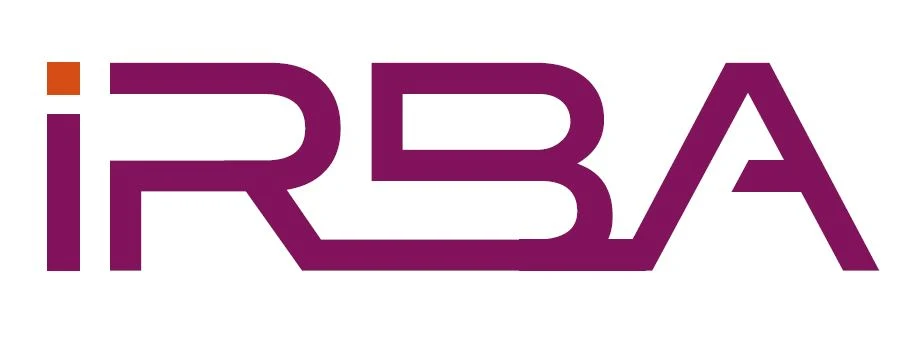Implementing an Energy Management System (EMS) offers numerous advantages that enhance operational efficiency and sustainability. Key benefits include:
- Energy Savings and Cost Reduction: EMS enables organizations to monitor and optimize energy consumption, effectively reducing waste. This leads to significant cost savings by lowering utility expenses and improving overall energy efficiency.
- Environmental Impact Mitigation: By decreasing energy usage, EMS contributes to lowering greenhouse gas emissions and reducing the carbon footprint. This aligns with global efforts to combat climate change and promotes corporate environmental responsibility.
- Regulatory Compliance: EMS assists businesses in adhering to standards such as Streamlined Energy and Carbon Reporting (SECR), Corporate Sustainability Reporting Directive (CSRD), and ISO 50001. Compliance with these regulations ensures legal adherence and enhances corporate reputation.
- Operational Efficiency: IN manufacturing facilities, EMS improves energy usage by identifying inefficiencies and implementing optimization strategies. This leads to enhanced productivity and reduces operational costs.
- Strategic Decision-Making: EMS provides real-time data analytics, empowering organizations to make informed decisions regarding energy management. This supports long-term sustainability planning and resource allocation.
Real-World Examples of EMS Benefits
- 3M Company: By implementing an EMS across 56 sites globally, 3M achieved substantial energy savings and enhanced energy efficiency. The system facilitated continuous improvement in energy performance, contributing to the company’s sustainability goals.
- Beijing Capital International Airport Co. Ltd.: The adoption of an EMS led to significant energy-saving benefits. Including a reduction in energy consumption and improved energy management practices. This initiative supported the company’s commitment to environmental sustainability.
- HARBEC Inc.: Through the implementation of an EMS, HARBEC achieved energy savings and improved operational efficiency. The system enabled real-time energy consumption monitoring, leading to informed decision-making and cost reductions.
These cases demonstrate the tangible benefits of EMS implementation, including cost savings, enhanced energy efficiency, and support for sustainability objectives.
Key Components of an Energy Management System (EMS)
A well-implemented energy Management System (EMS) is a combination of tools, processes, and strategies that work together to optimize energy consumption and improve sustainability. By leveraging the following components, organizations can achieve operational excellence and reduce environmental impact.
- Energy Monitoring and Metering
Accurate data collection is the foundation of any EMS. Smart meters and sensors continuously track energy consumption across operations, providing real-time data for analysis. This granular visibility helps businesses identify usage patterns, detect wastage, and set benchmarks for improvement. Effective monitoring also supports compliance with energy efficiency standards and improves decision-making.
- Energy Audits
Regular energy audits are essential for identifying inefficiencies and uncovering opportunities to reduce energy waste. Audits assess energy usage, equipment performance, and process efficiency, enabling business to implement corrective actions. Morningside Consulting’s energy audit solutions streamline this process by combining comprehensive assessments with actionable insights.
- Energy Efficiency Measures
Implementing measures like upgrading to energy-efficient equipment, optimizing production schedules, and improving HVAC systems can significantly reduce energy usage. These measures are key to lowering operating costs and enhancing overall sustainability. Organizations with EMS can track the effectiveness of these measures in real-time, ensuring continuous improvement.
- Integration with Carbon Reporting
A robust EMS aligns energy data with Scope 1, 2, and 3 emissions for comprehensive carbon reporting. This integration simplifies compliance with frameworks like GHG Protocol, enabling businesses to track their carbon footprint and meet emission standards. Morningside Consulting offers seamless integration of energy management with carbon accounting software, making Scope 3 emissions reporting accurate and hassle-free. Explore our carbon reporting solutions.
- Automation and Smart Technology
IoT devices, AI-driven analytics, and real-time automation are revolutionizing EMS. Smart technologies enable predictive maintenance, automated controls, and instantaneous adjustments, maximizing energy efficiency while reducing operational downtime. Maverick leverages advanced AI and IoT to deliver real-time analytics and automation, helping businesses optimize energy usage and align with sustainability goals. Find out how our solutions integrate smart technology in our Energy Efficiency Guide.
With the right combination of these components, EMS not only improves operational efficiency but also positions businesses as leaders in energy efficiency and sustainability.
Applications of Energy Management Systems-Industry Specific
Implementing Energy Management Systems (EMS) is essential for energy-intensive industries aiming to enhance efficiency, reduce costs, and minimize environmental impact. Here’s an overview of EMS applications across various sectors:
- Manufacturing and Mining: EMS enables real-time monitoring and optimization of energy consumption in production processes, leading to significant cost savings and improved operational efficiency.
- Automotive: Incorporating EMS helps automotive manufacturers reduce energy usage in both vehicle production and operational phases, contributing to lower emissions and compliance with environmental standards.
- Aeronautics: EMS assists in managing the substantial energy demands of aircraft manufacturing, ensuring processes are energy-efficient and sustainable.
- Healthcare: Hospitals and medical facilities utilize EMS to monitor and control energy usage, ensuring critical systems operate efficiently while reducing operational costs.
- Heavy Machinery: EMS aids in optimizing the energy consumption of large equipment, enhancing performance, and extending machinery lifespan.
Steps to Implementing an Effective Energy Management System (EMS)
Implementing an Energy Management System (EMS) requires a structured approach to ensure its effectiveness and alignment with organizational goals. Here’s a step-by-step guide:
Step 1: Conduct an Energy Audit to Assess Current Usage
Begin with a comprehensive energy audit to identify inefficiencies and establish a baseline for energy consumption. This involves examining equipment, processes, and operational practices to highlight areas of energy waste. Understanding your current energy consumption is crucial for Morningside Consulting’s energy audit solutions can provide deep insights and facilitate compliance with frameworks like the GHG Protocol.
Step 2: Set Energy Reduction and Carbon Reporting Goals
Define clear, measurable objectives for reducing energy usage and lowering carbon emissions. Goals should align with regulatory requirements such as SECR, CSRD, or ISO 50001 and consider long-term sustainability targets like net-zero emission. Integrating these goals with Scope 1, 2, and 3 emissions reporting ensures a holistic approach to energy and carbon management.
Step 3: Select the Right EMS Tools and Technology
Choose an EMS solution that suits your organization’s needs. modern EMS tools leverage IoT devices, AI-powered analytics, and real-time monitoring for enhanced decision-making. Ensure the system integrates seamlessly with carbon accounting software for streamlined reporting and compliance.
Step 4: Train Employees and Create an Energy-Conscious Culture
Effective EMS implementation depends on employee engagement. Train staff to use the EMS and foster a culture of energy efficiency. Empowering employees to identify and address inefficiencies can lead to continuous improvement and stronger adherence to sustainability goals.
Step 5: Monitor, Review, and Optimize the EMS Regularly
EMS is not a one-time setup. Continuously monitor performance metrics, compare them against goals, and adjust strategies as needed. Regular reviews ensure the system evolves with changing energy demands and regulatory updates, maximizing its effectiveness.
Explore Morningside Consulting’s solution to simply every stage of EMS implementation
Trends in Energy Management Systems (EMS)
The integration of renewable energy sources into Energy Management Systems (EMS) is a growing trend, driven by the global shift towards sustainable energy solutions. Key developments include:
- Increased Renewable Energy Adoption: in 2024, Spain achieved a record 56% of its electricity supply from renewable sources like wind and solar, marking a significant milestone in the country’s energy transition.
- Industrial Sector Initiatives: Companies are increasingly adopting renewable energy to reduce greenhouse gas emissions. For example, Flex Power Solutions in Limerick, Ireland, developed technology to convert excess renewable electricity into useful heat, aiding industrial decarbonization efforts.
- Global Renewable Energy Capacity Growth: China has rapidly expanded its renewable energy capacity, adding 216 gigawatts of solar power in 2023 alone, demonstrating a significant commitment to renewable energy integration.
- Advancing in Energy Storage and Grid Modernization: The increasing share of renewables necessitates enhancements in energy storage solutions and grid infrastructure to manage variability and ensure reliability. Investments in smart grids and battery storage are critical to accommodate the growing influx of renewable energy.
Future Energy Management Systems
The future of Energy Management Systems (EMS) is being shaped by rapid advancements in technology and evolving sustainability goals. These innovations are set to transform how businesses manage energy and reduce their environmental impact.
Emerging Technologies in EMS
- Smart Grid: These intelligent energy networks allow EMS to interact dynamically with utilities, optimizing energy distribution and consumption while reducing waste.
- Digital Twins: Virtual replicas of physical systems enable organizations to simulate and test energy strategies, predicting outcomes without disrupting operations.
- Advanced Sensors: IoT-enabled sensors provide real-time data on energy usage, improving precision and enabling proactive energy management.
Did you know?
Energy Management in Automotive Manufacturing took a significant leap forward with the adoption of advanced EMS with the adoption of EMS solutions by leading companies in Europe.
Volkswagen’s manufacturing plant Zwickau, Germany, has undergone a significant transformation to model of energy-efficient automotive production. By implementing an advanced EMS, the plant has optimized its energy consumption, leading to reduction in CO2 emissions by more than 60%. This initiative aligns with Volkswagen’s broader strategy to achieve carbon-neutral production across its facilities.
Conclusion
The evolving landscape of EMS underscores its importance in meeting both operational and environmental challenges. By embracing emerging technologies and aligning with regulatory goals, businesses can position themselves as leaders in energy efficiency and sustainability. Morningside Consulting’s advanced tools and solutions are at the forefront of this transition, helping organization navigate the future of energy management with confidence. Contact Morningside Consulting today for smarter Energy Management System solutions
Explore Morningside Consulting solutions to simplify every stage of your EMS programs



